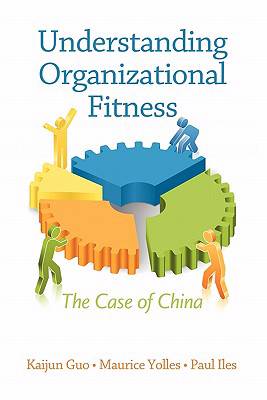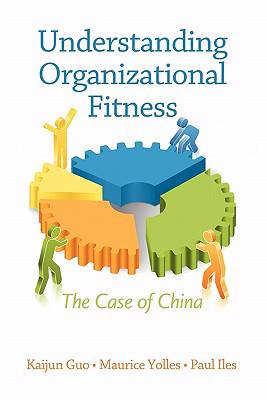
- Retrait gratuit dans votre magasin Club
- 7.000.000 titres dans notre catalogue
- Payer en toute sécurité
- Toujours un magasin près de chez vous
- Retrait gratuit dans votre magasin Club
- 7.000.0000 titres dans notre catalogue
- Payer en toute sécurité
- Toujours un magasin près de chez vous
Understanding Organizational Fitness
The Case of China
Kaijun Guo, Paul Iles, Maurice Yolles
Livre broché | Anglais
84,95 €
+ 169 points
Format
Description
The focus if this book has two dimensions: theoretical and empirical. The theoretical dimension is concerned with the fitness of an organization to satisfactorily address processes of transformational change. Such fitness, it will be argued, can be expressed in terms of the coherence (degree of integration) and pathology (condition of ill health) of the organization being explored. In attempting to assess organizational fitness, a model that comes out of the field of knowledge cybernetics will be used and developed further as a strategic organizational map, and applied empirically. The empirical dimension centers on the specific situation of the banking industry in China as it is passing through transformational change. There is a great need for organizations there to guide their own changes in a way that enables them to improve themselves in a changing environment. A methodology that can assist organizations in the change process is organization development, an approach often used within a human resource development context, but it has some problems with dealing with such dramatic change. In this theory a new approach will be explored and developed to assess the fitness of an organization to pass through transformational change processes. The theory undertaken has enabled the theoretical approach adopted to be defined, and the design of the empirical work to emerge from reflections on the initial work undertaken. In particular our interests in this book are to (1) explain theory that is able to assess the fitness of organizations to pass through transformational change and (2) demonstrate how the theory can be applied as a measuring instrument to a detailed case study, exploring the Chinese State banking system.
Spécifications
Parties prenantes
- Auteur(s) :
- Editeur:
Contenu
- Nombre de pages :
- 278
- Langue:
- Anglais
Caractéristiques
- EAN:
- 9781617353758
- Date de parution :
- 02-06-11
- Format:
- Livre broché
- Format numérique:
- Trade paperback (VS)
- Dimensions :
- 156 mm x 234 mm
- Poids :
- 394 g

Les avis
Nous publions uniquement les avis qui respectent les conditions requises. Consultez nos conditions pour les avis.






